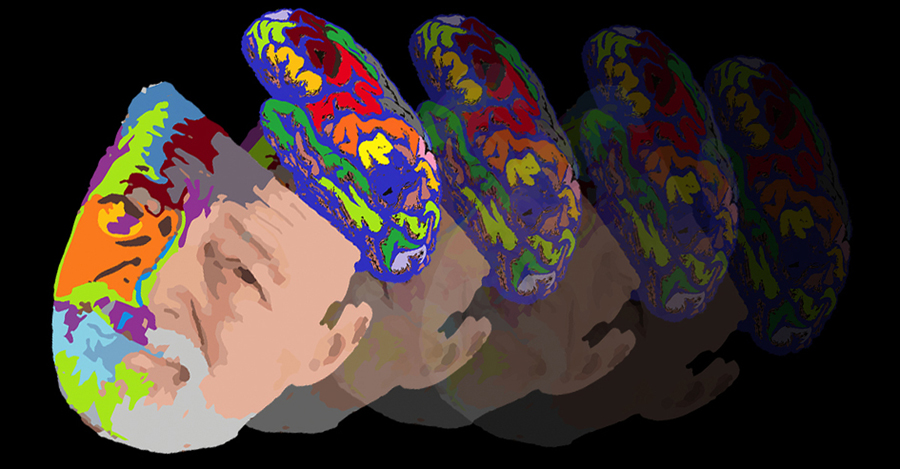
Support For An Aging Mind
by Mark J Kaylor
Mike is a 50-something ex-professional athlete who came to see me last year after hearing my lecture on reversing the “aging” process. He was becoming more and more worried about how well his memory was working, or more accurately, how it wasn’t “what it used to be.” Adding to his concern was the family history of an aunt who had dementia issues late in her life as well as concerns over his head having taken a beating during his pro days. 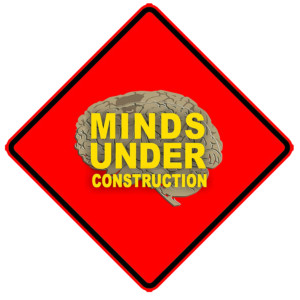 Mike, like many of us as we progress through the middle years, was becoming very sensitive to how well his brain and memory was operating. Every little thing he had a problem with remembering raised apprehension and fear that he may be on the path to dementia, or even Alzheimer’s disease.
Mike, like many of us as we progress through the middle years, was becoming very sensitive to how well his brain and memory was operating. Every little thing he had a problem with remembering raised apprehension and fear that he may be on the path to dementia, or even Alzheimer’s disease.
While his concerns are legitimate, especially considering neurodegenerative disorders, like Alzheimer’s and Parkinson’s, are on the rise and genetics and head trauma are leading risk factors. The type of memory issues he was talking about, where are the keys?, what is the word for that?, etc, are not necessarily the types of problem that indicate a pathology. This is not surprising since a mind that has several decades of experience might take a little more effort in recalling things, since, hopefully, our brain is now so much fuller than it was when we were 21. I assured him that there is much that can be done on the path to an ageless mind, however it would require some lifestyle, dietary and supplement adjustments.
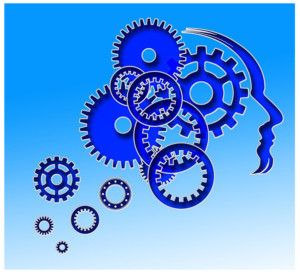 But first we need to dispel a myth. Probably most of us believe that losing our memory is just an inevitable part of aging. Let me be very clear on this. This is definitely NOT the case. While we may not be able to grow more brain cells (something I’m not fully convinced of) after a certain age, our brain cells are capable of significantly increasing the number of connections they make with one another, actually increasing the mass of your brain and resulting in a better working brain. A single neuron is capable of making around 20,000 connections, which gives us plenty of room for keeping the mind functioning optimally. Our brain and our body is an intricate and complex web of trillions of interconnections. So the second part of this story is that to have a healthy brain you are best served by also having a healthy and balanced body. And that is the approach we will take here.
But first we need to dispel a myth. Probably most of us believe that losing our memory is just an inevitable part of aging. Let me be very clear on this. This is definitely NOT the case. While we may not be able to grow more brain cells (something I’m not fully convinced of) after a certain age, our brain cells are capable of significantly increasing the number of connections they make with one another, actually increasing the mass of your brain and resulting in a better working brain. A single neuron is capable of making around 20,000 connections, which gives us plenty of room for keeping the mind functioning optimally. Our brain and our body is an intricate and complex web of trillions of interconnections. So the second part of this story is that to have a healthy brain you are best served by also having a healthy and balanced body. And that is the approach we will take here.
Considering the complexities of the brain and the elaborate interactions within the body, it would take several books to fully explore this subject, so, this article will offer up a few lists and guidelines for you to consider and investigate on your own.
Lifestyle
For far too many of us, the prospect of aging is generally considered an unwanted and unpleasant process, it needn’t be. Ironically, it is this belief that may actually end up contributing to the dark side of aging we so long to avoid. There is no reason that the mere passage of time should hinder or be an impediment to living the life we chose.
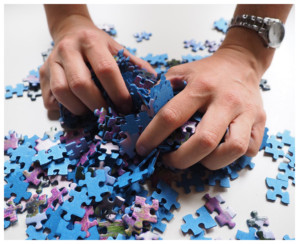 • Our brains need and thrive on variety, challenge and change. So give it what it needs, exercise the brain, learn something new, do things differently, study a new language, anything that moves it out of its box. And don’t forget to turn off the TV.
• Our brains need and thrive on variety, challenge and change. So give it what it needs, exercise the brain, learn something new, do things differently, study a new language, anything that moves it out of its box. And don’t forget to turn off the TV.
• Our brain is also not best served by the couch potato lifestyle, it not only needs mental stimulation but physical as well, a fact now supported by numerous studies. Exercise may actually lead to the growth of new brain cells and make you smarter.
 • The inactive lifestyle contributes to obesity that may increase your risk of dementia later in life.
• The inactive lifestyle contributes to obesity that may increase your risk of dementia later in life.
• None of us like being stressed and long-term exposure to stress hormones may result in poorer memory and even a smaller brain.
• Get enough sleep. A hundred years ago the average was 9 hours, today it is 6. Less than 6 hours of sleep demonstrated negative effects on memory and math test scores along with decreased blood flow to the brain.
• Remove dangerous toxins from your environment and diet including solvents (i.e. paint, gasoline,…), free radicals, excitotoxins (substances that over stimulate the brain leading to damaged cells and function), heavy metals, and food allergies and sensitivities.
Supplements
While a healthy diet is essential, there are numerous nutrients and herbs that can support and further strengthen our mental faculties as well as possibly prevent and treat various brain dysfunctions. Always start with a good multiple vitamin/mineral high in B vitamins for basic nutrition.
 • Ginkgo: increases blood supply to the brain, protects against neurotoxins, improves mitochondrial and cell membrane function, and fights free radicals
• Ginkgo: increases blood supply to the brain, protects against neurotoxins, improves mitochondrial and cell membrane function, and fights free radicals
• Bacopa: promotes memory, attention & focus, relieves anxiety and protects the brain
• Gotu kola: improves poor memory & mental fatigue and protects nerve & nervous system health with a recent study done in Korea showing promise for Alzheimer’s
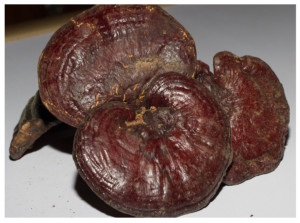 • Reishi: improves cognitive function, nourishes an overtaxed nervous system and may prolong life
• Reishi: improves cognitive function, nourishes an overtaxed nervous system and may prolong life
• Alpha lipoic acid & Acetyl l-carnitine: this combo dramatically enhances the functioning of the mitochondria, may improve memory, increases energy levels
• Ashwagandha: reduces damage from chronic stress, protects against neurodegeneration, increases neurotransmitters, stimulates the mind while building a calming energy
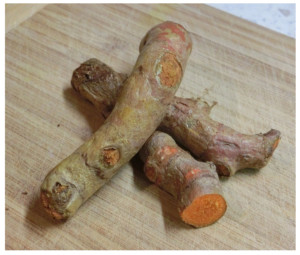 • Turmeric: very potent antioxidant, increases neurotransmitters, may inhibit formation of beta amyloid plaque and helps maintain healthy neurons
• Turmeric: very potent antioxidant, increases neurotransmitters, may inhibit formation of beta amyloid plaque and helps maintain healthy neurons
• Lion’s Mane (it’s a mushroom): an ancient mushroom traditionally used to build Qi and strengthen the digestion, recent studies show it stimulates production of nerve growth factor and holds much promise in preventing or reversing Alzheimer’s by possibly stopping the buildup of beta amyloid plaque and protecting healthy brain cells from related plaque damage
Diet
Our brains are very metabolically active requiring a constant flow of nutrients, fuel and oxygen and as Dr. Amen wrote, “You’ve got to eat right to think right.” As simple as it may sound, a healthy, balanced, varied whole food diet of mostly vegetables and fruits with plenty of omega 3 fatty acids has been shown to improve memory, mood, IQ and even behavior.
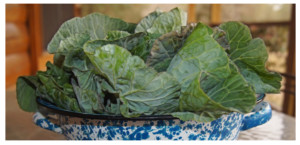 • A study with 2,200 dementia-free elderly individuals who ate closest to the Mediterranean diet had lowest incidence of Alzheimer’s & mental decline
• A study with 2,200 dementia-free elderly individuals who ate closest to the Mediterranean diet had lowest incidence of Alzheimer’s & mental decline
• Another study of 4,000 people over 65 found those who ate the highest amounts of green leafy vegetables had the lowest decline in thinking
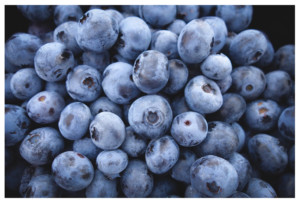 • Getting the right amounts and kinds of fats is essential for healthy memory and brain functions. One of many studies confirming
• Getting the right amounts and kinds of fats is essential for healthy memory and brain functions. One of many studies confirming 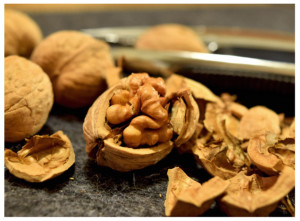 this demonstrated that those eating the highest total fat content had a 240% higher risk of dementia while those who ate the most fish were associated with a 60% reduction. Getting plenty of omega 3 fatty acids and particularly DHA is absolutely essential
this demonstrated that those eating the highest total fat content had a 240% higher risk of dementia while those who ate the most fish were associated with a 60% reduction. Getting plenty of omega 3 fatty acids and particularly DHA is absolutely essential
• Two super foods of special note for brain nutrition are blueberries and raw walnuts
Get Started Now
It is important to remember that there is no quick fix for brain health and improved mental functions, you need to give the changes and supplements time to have their impact. Also of consequence is that once neuro-degenerative disorders, like Parkinson’s, Alzheimer’s, dementia or ALS, grab hold it may not be possible to stop or reverse. The old maxim, an ounce of prevention is worth a pound of cure, is clearly the takeaway lesson and best and healthiest path to an ageless mind and memory.
